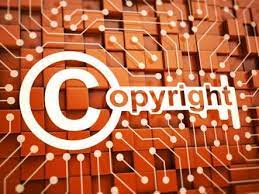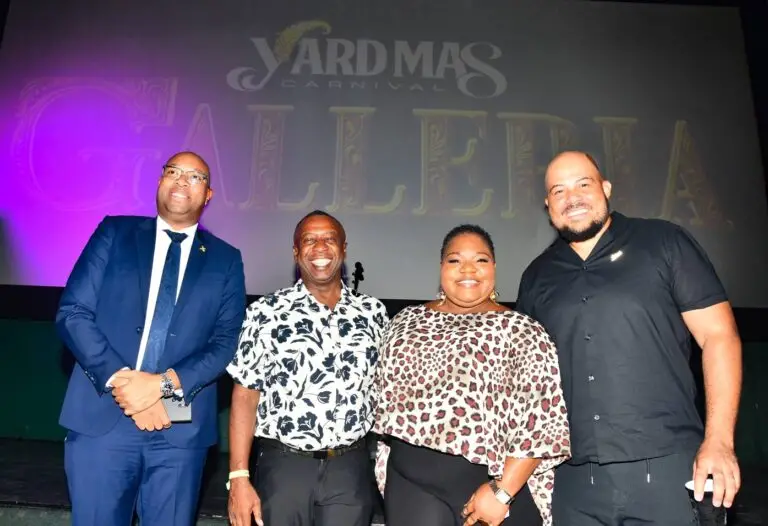Copyright owners in the music industry
MIIC Author

IN these trying times, music can still be described as one thing that, when it hits you, you feel no pain. What can be rather painful, however, is when, having exerted much effort to create a work in music, you are not recognised as the owner of your work, or you do not profit from your labour. An interest in copyright can arise at different stages of creating music. If you are in the music industry, it is important that you understand what, if anything, you own as result of your contribution to any item of music.
The primary source of law governing copyright in Jamaica is the Copyright Act, 1993, which was amended in 2015 (the “Act”). Section 6 of the Act includes that copyright is a property right which may subsist in original literary, musical, or artistic works and sound recordings, among other things. There can be several copyright owners in one musical product and each such owner can be entitled to remuneration and other benefits.
Let’s say for example, two friends were playing around with words one afternoon, and at the end of what they originally thought was a frivolous exercise they realised that they created a song that had some potential. The lyrics of the song may be considered a “literary work” under Section 2 of the Act, which is defined as including any work, other than dramatic or musical work, which is written, spoken, or sung. Given that the friends created the lyrics together, Section 22(3) of the Act may apply in their case, classifying the work as one of joint authorship for which they are co-owners of the copyright in the literary work.
Section 9 of the Act provides for the Voluntary Copyright Registration Service which was introduced by the amendment in 2015. This allows copyright owners to apply to have their interest in copyright recorded in the Register of Copyright and Related Rights at the Jamaica Intellectual Property Office. Notably, the holder of an interest in copyright is not deprived of his rights under the Act if he fails to register his interest.
Assuming the lyrics of the song amounted to protected work, as the authors the friends would have moral and economic rights arising from their copyright in the song lyrics. Section 14 of the Act explains that moral rights include an exclusive right to be identified as the author of a work whenever the work, or an adaptation of it, is published commercially or performed in public, among other things. Their economic rights, accounted for in Section 9 of the Act, include their exclusive right to do or to authorise other persons to do, in Jamaica, acts including copying the song, performing the song in public, or making adaptations of the song.
Let’s say the friends decided to record the song and sought assistance from a record company for this purpose. They both signed a contract agreeing that they would retain their copyright interest in the lyrics of the song, but the record company would cover all the costs associated with recording the song and would own the copyright in the musical work and the sound recording. The friends went to the studio owned by the record company and were greeted by the company’s engineer and musicians. The musicians listened to the lyrics of the song and created the musical work that they thought would suit the lyrics.
Musical work is defined in Section 2 of the Act as a work consisting of music, exclusive of any words or action intended to be sung, spoken, or performed with the music. Section 22(1) of the Act provides that the author of protected work is the first owner of any copyright in that work unless there is an agreement to the contrary. Assuming the musical work in the example is protected work, the musicians would be the authors of the musical work. However, employers sometimes include in their contracts with their employees that they own their employees’ work. Let’s say such a contract existed in the example, in which case, the musical work created by the musicians would be owned by the record company.
Having created the musical work, the parties were ready to start recording when they all came to the realisation that the friends, and co-owners of the copyright in the literary work, were terrible singers. Fortunately, the record company just happened to have had a vocal artiste with the most glorious voice sitting idly somewhere in a back room. She took over the singing and the final product was the best the company had produced in the opinion of all parties present.
The vocal artiste would have performer’s rights, covered in Part IX of the Act. Generally, a performer is not regarded as a copyright owner, but the vocal artiste’s consent would be required for the exploitation of her performance. In the example, the vocal artiste is an employee of the record company and, like the musicians, let’s say she too consented to her work being used and owned by the company.
Based on the definition of “author” in Section 2 of the Act, the sound recording would also be owned by the record company, as it is the person by whom the arrangements necessary for the making of the recording are undertaken.
The authors of literary works, the composers of musical works and the producers of sound recordings are usually copyright owners. Their interests in copyright can co-exist but they are separate from each other. Copyright owners are generally entitled to recognition and royalties for exploitation of their works, but in the real world, the circumstances tend not to be as straightforward as in the example. As a contributor to the music industry, it may be prudent to seek legal advice, especially when dealing with contracts pertaining to an interest in copyright, to ensure that you do not dispose of your rights for little or nothing.
Kimberley Brown is an associate in Myers, Fletcher & Gordon’s Commercial Department. She may be contacted via kimberley.brown@mfg.com.jm or www.myersfletcher.com. This article is for general information purposes only and does not constitute legal advice.
Source: Jamaica Observer
Recent News
See all news


Posted on 19/12/2025
Over 600 MSMEs Receive Support
More than 600 entities across Trelawny, Hanover, St. Elizabeth and St. James have received direct assistance as the Government intensifies support for micro, small and medium-sized enterprises (MSMEs) following Hurricane Melissa. The support progr...

Posted on 19/12/2025
Major Hotel Developments to Generate Significant Employment Opportunities
Minister of State in the Ministry of Industry, Investment and Commerce, Hon. Delano Seiveright, says significant employment opportunities are to be generated by several major hotel developments, scheduled to open or reopen in the coming months and...

Posted on 19/12/2025
Yard Mas curates moving masterpieces for ‘Galleria’
For the second-consecutive year Yard Mas pulled out all the dramatics for its official band launch. Held at Palace Cineplex at Sovereign Centre on Sunday, under the theme Galleria, conceptualised by Yard Mas Director Richard “Richie Ras” Spence an...









